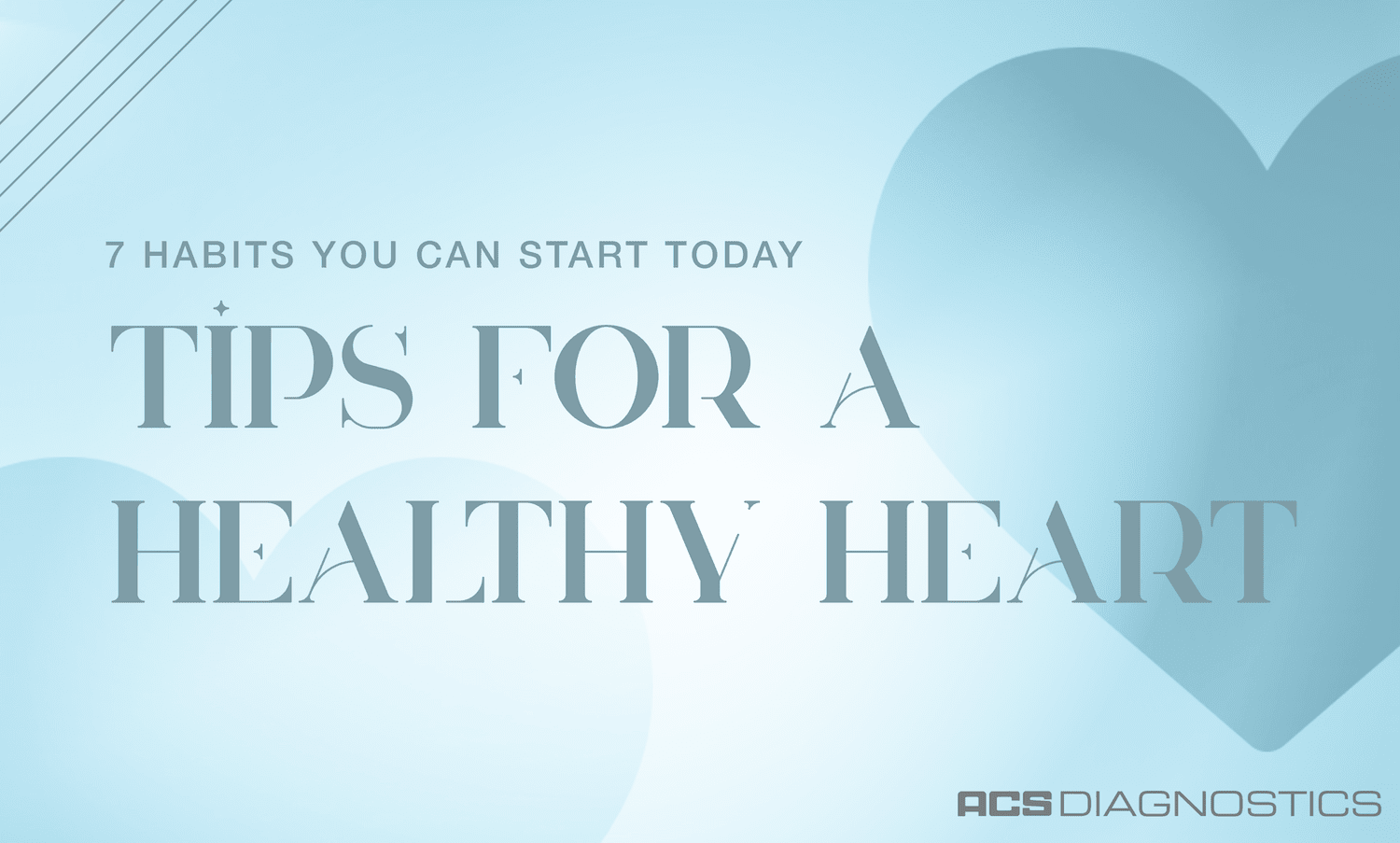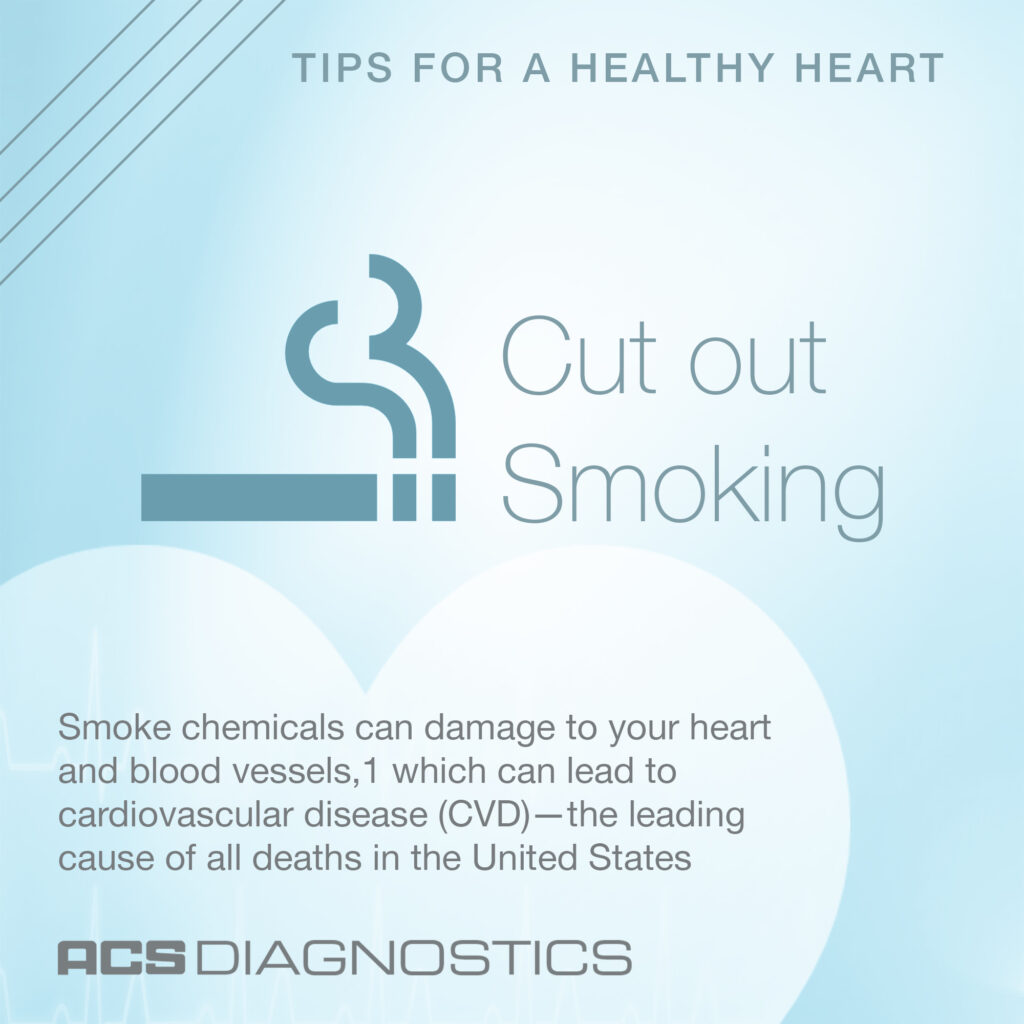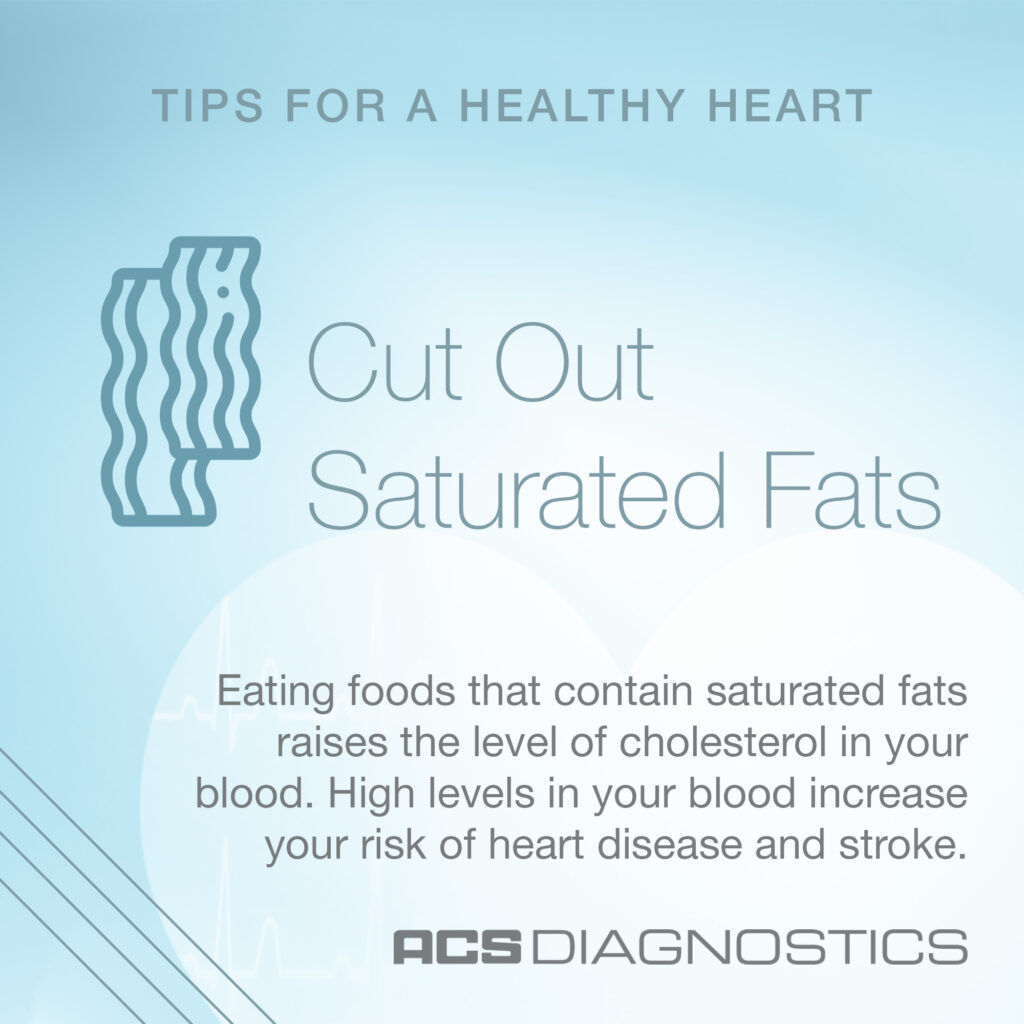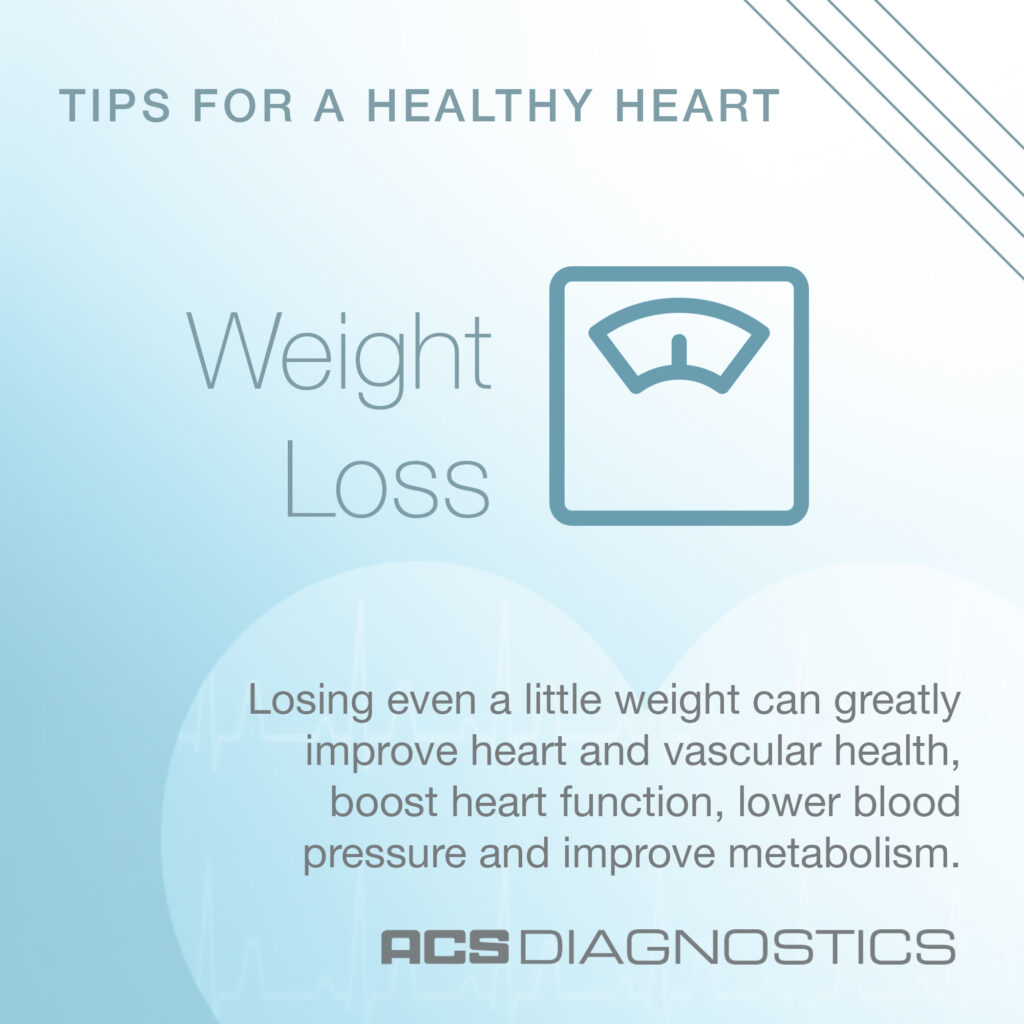
Healthy Heart Tips
So often people don’t think about maintaining a healthy heart until something goes wrong. We wait until our bodies tell us something is wrong and has to be done. However, preventative care is far more powerful than sick care. In this article, we will cover a few tips you can make part of your lifestyle today.
Benjamin Franklin said, “An ounce of prevention is worth a pound of cure.” When you take the steps to ensure health, not only do you prevent diseases from happening, but you embrace a higher quality of life.
Sometimes it can seem daunting when there is a list of dos and don’ts to follow in regards to our health. The goal can seem too far off and we discourage ourselves from trying before we even begin. However, taking one healthy practice at a time and turning them into habits can be a powerful strategy that has been found to succeed time and time again. Good habits today lead to positive outcomes tomorrow.
The path to a healthy heart starts with some simple steps that you can do today.
Cut Out Smoking
The chief cause of preventable disease and death in the US is cigarette smoking. This is a harmful habit that can affect almost any part of the body. The smoke from cigarettes contains more than 7,000 chemicals that affect your body’s normal functions. An extremely important function that is hindered is oxygen rich blood being delivered to your heart and body.
Oxygen is consumed when you breathe in and delivered to your body via your blood. When you consume cigarette smoke, you consume chemicals that your body then distributes. This is why even the inhalation of smoke can be harmful. Nearly 30,000 US coronary heart disease deaths are caused by secondhand smoke.

Even if you have been a smoker, stopping today can still benefit your body and lower your risk of heart disease. According to the FDA:
- “Twenty minutes after you quit smoking, your heart rate drops.8
- Just 12 hours after quitting smoking, the carbon monoxide level in the blood drops to normal, allowing more oxygen to vital organs like your heart.8
- Within four years of quitting, your risk of stroke drops to that of lifetime nonsmokers.9”
Lower Alcohol Consumption
Alcohol consumption, although there may be some benefits particularly with red wine, can potentially cause much damage to the body and heart. However, as in many cases, moderation is the key.
Heavy drinking is a serious issue that can come between you and a healthy heart. High blood pressure, heart failure, or strokes are all by products of excessive drinking.
To keep your drinking moderate, John Hopkins Medicine suggests, “One drink per day for women and one or two for men. A drink might be less than you think: 12 ounces of beer, 4 ounces of wine or 1.5 ounces of 80-proof spirits.” They go on to even suggest that this amount may be too much, based off your health history and personal reaction.
Benjamin Franklin said, “An ounce of prevention is worth a pound of cure.” When you take the steps to ensure health, not only do you prevent diseases from happening, but you embrace a higher quality of life.
Regular Blood Sugar Testing
An important part of preventative care is routine testing. Blood testing in particular can be a very good way to hone in on problems in your body or system. Knowing what your body is prone to or weak in regards to can enable you to take on a fitness plan or diet designed to benefit you.
Cut Out Saturated Fats
Another path to a healthy heart is to stay away from saturated fats. But what are saturated fats? The name saturated fats comes from the saturation of hydrogen molecules. At room temperature these fats are solid. It is recommended to limit your consumption of these fats, to around 6 or 5%.

Saturated fat can be found in a variety of foods, including pork, lamb, fatty beef, various oils, butter, fried foods, and baked goods. Consumption of these fats raise the level of cholesterol in your blood. High levels of cholesterol create a great risk for heart disease and stroke.
In order to reduce saturated fat consumption, try to fill your diet with foods that benefit your body. Fruits, vegetables, whole grains, poultry, fish and nuts can be substituted and aid the way to a healthier heart.
Manage Your Stress
The emotions, thoughts and stress that you experience can have an impact on your heart health. Your mental state can impact your heart, and overall health. How does stress impact your body? When you experience stress, your body releases adrenaline. This hormone increases the rate of your breathing and heart. These reactions can be helpful to deal with situations that arise, but an excess of feeling them with no outlet can have a negative impact.
For your health and well-being, it is good to maintain a positive mental state and reduce your stress. You can lower your risk of heart disease and death by following a few simple practices.
- Exercise regularly. Exercise gives an outlet to release tension and emotions that your body stores up.
- Social Connections. Keeping healthy and trusting relationships can be beneficial to your mental health and stress.
- Full night sleep. A beneficial night of sleep is around 7 to 9 hours of sleep each night.
- Keep your attitude positive. This can go a long way to how each problem and challenge you encounter affects your heart.
- Take time to relax. Letting your body wind down is crucial.
- Get a new hobby. Find a hobby where you can engage your mind and distract from the every day stress.

Slow & Steady Weight Loss
Obesity increases your risk for a variety of diseases. Heart disease, diabetes and cancer are just a few of the many side effects of being overweight. Reading the previous sentence can cause a panic if you are currently struggling with weight loss, but it is important to take a healthy approach to weight loss as in all other areas.

Weight loss should not come in spurts of starving yourself. It should come in a healthy way, with a long term solution that is balanced and fully benefits your body. Weight loss should be a healthy balance of consuming less calories than you burn each day. Consequently, taking on and maintaining new habits can be one of the most powerful tools for weight loss. Not only can healthy diet habits be good for weight loss, but they can be extremely good for your heart.
Average 7-9 Hours of Sleep
Good sleep has so many benefits to your health and well being. Your heart and brain receive direct benefits from a good night sleep, such as a better mental well being. In addition, your nervous, skeletal, muscular and immune systems are all improving when your body is in its resting state.
For average adults, it is important to get around 7-9 hours of sleep.
For average adults, it is important to get around 7-9 hours of sleep. Keeping steady and recurring sleep habits is one of the most beneficial things you can do for your heart and mind. Irregular sleep patterns, however, where you sleep for a long time on the weekends only, has been found to actually be harmful to your heart. As the other points of this article mention, it is so important to create healthy habits, vs sporadic binges.
The Power of Healthy Habits
In conclusion, all of these heart health tips can be summed up into maintaining heart healthy habits. Regular sleep, healthy diet, and regular exercise are just a few of the good habits to work on adding to your lifestyle. Remember, it’s not about suddenly changing everything about your life. It takes baby steps, little victories that become healthy habits.
ACS Diagnostics, Inc.
ACS Diagnostics has been monitoring and delivering quality ECG for nearly 40 years. We believe in quality products, that produce High Resolution ECG, with Full Disclosure. If you have any arrhythmias or heart issues, contact us today. ACS Diagnostics can get you in touch with a Cardiologist, or get a remote test sent directly to your home. Don’t ignore your heart, take control today!
